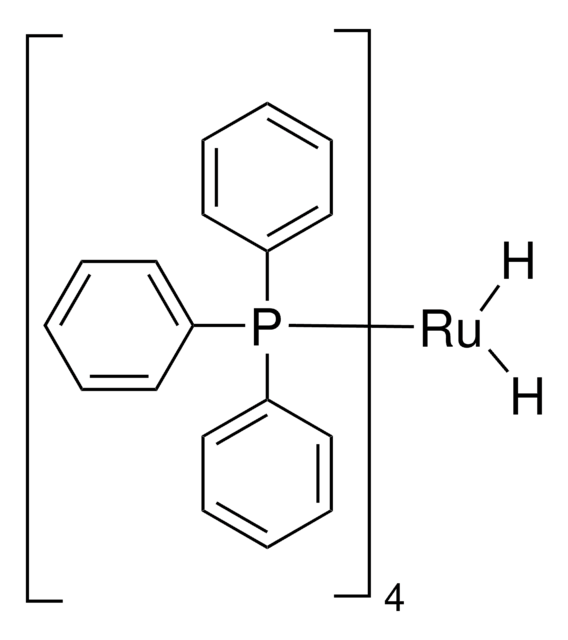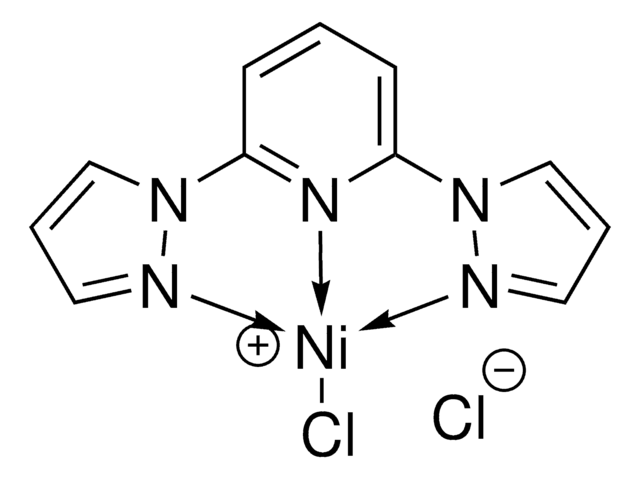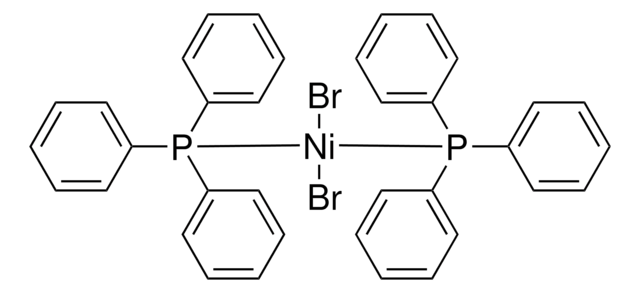335363
[1,3-Bis(diphenylphosphino)propane]dichloronickel(II)
Synonym(s):
(1,3-dppp)NiCl2, 1,3-Bis(diphenylphosphino)propane nickel(II) chloride, Ni(dppp)Cl2
About This Item
Recommended Products
form
powder
Quality Level
reaction suitability
core: nickel
reaction type: Cross Couplings
reagent type: catalyst
mp
213 °C (dec.) (lit.)
SMILES string
Cl[Ni]Cl.C(CP(c1ccccc1)c2ccccc2)CP(c3ccccc3)c4ccccc4
InChI
1S/C27H26P2.2ClH.Ni/c1-5-14-24(15-6-1)28(25-16-7-2-8-17-25)22-13-23-29(26-18-9-3-10-19-26)27-20-11-4-12-21-27;;;/h1-12,14-21H,13,22-23H2;2*1H;/q;;;+2/p-2
InChI key
ZBQUMMFUJLOTQC-UHFFFAOYSA-L
Looking for similar products? Visit Product Comparison Guide
Application
- Synthesis of block-copolythiophenes
- Suzuki-Miyaura cross-coupling reaction of aryl halides with arylboronic acids
- Solid state metathesis polycondensation
- Polymerization of poly(3-alkoxythiophene)s
- Diastereoselective Nozaki-Hiyama-Kishi coupling reactions of C1-C19 fragment of macrolide antibiotic aplyronine A
- Transfer condensation polymerization of conjugated polymers
Related product
signalword
Danger
Hazard Classifications
Carc. 1A - Eye Irrit. 2 - Resp. Sens. 1 - Skin Irrit. 2 - Skin Sens. 1 - STOT SE 3
target_organs
Respiratory system
Storage Class
6.1C - Combustible acute toxic Cat.3 / toxic compounds or compounds which causing chronic effects
wgk_germany
WGK 3
flash_point_f
Not applicable
flash_point_c
Not applicable
ppe
Eyeshields, Faceshields, Gloves, type P2 (EN 143) respirator cartridges
Choose from one of the most recent versions:
Already Own This Product?
Find documentation for the products that you have recently purchased in the Document Library.
Customers Also Viewed
Our team of scientists has experience in all areas of research including Life Science, Material Science, Chemical Synthesis, Chromatography, Analytical and many others.
Contact Technical Service![[1,2-Bis(diphenylphosphino)ethane]dichloronickel(II)](/deepweb/assets/sigmaaldrich/product/structures/707/956/483e7a6e-5fb5-4e39-abd1-ecf33ccab3cf/640/483e7a6e-5fb5-4e39-abd1-ecf33ccab3cf.png)

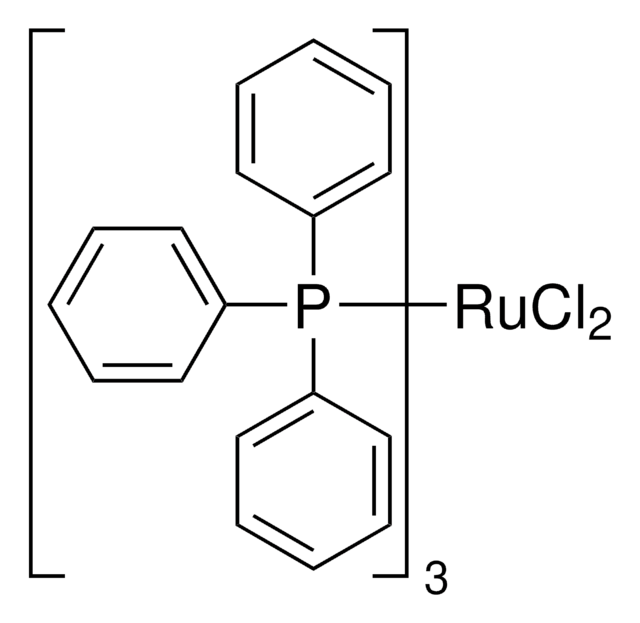

![[1,1′-Bis(diphenylphosphino)ferrocene]dichloronickel(II) 97%](/deepweb/assets/sigmaaldrich/product/structures/274/566/a60d6584-163a-4c41-a738-60f8e4d524fa/640/a60d6584-163a-4c41-a738-60f8e4d524fa.png)
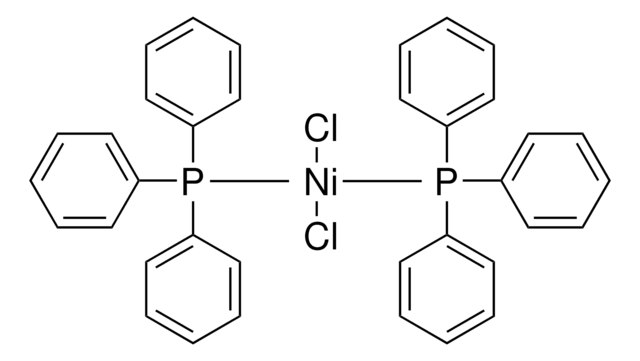
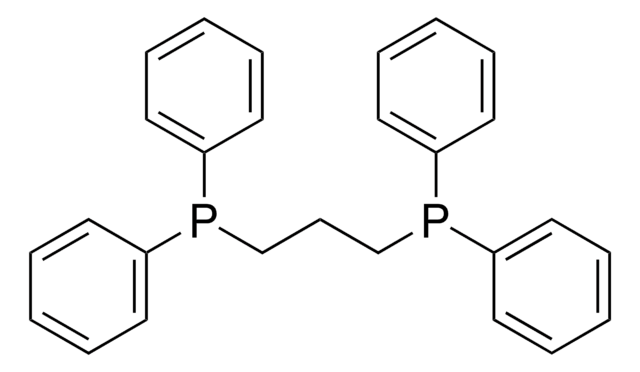
![[1,1′-Bis(diphenylphosphino)ferrocene]dichloropalladium(II)](/deepweb/assets/sigmaaldrich/product/structures/130/734/8846aa26-1858-458a-998d-8c306c13bf0f/640/8846aa26-1858-458a-998d-8c306c13bf0f.png)

